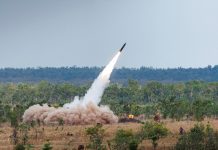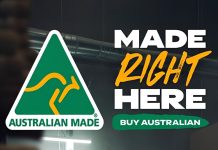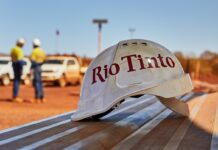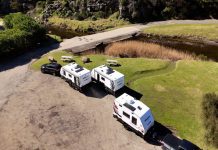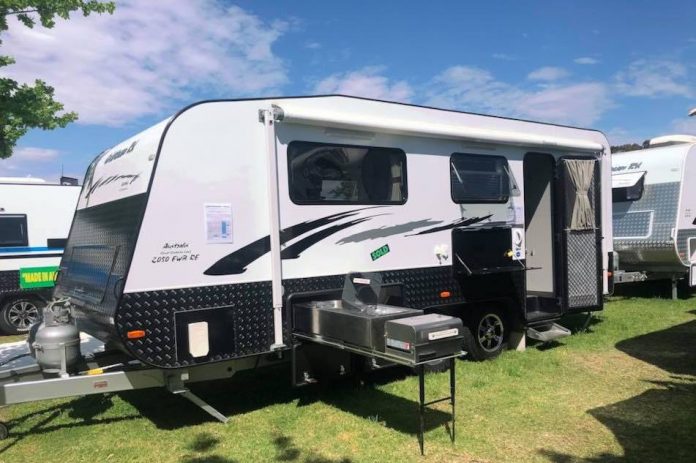
The Australian recreational vehicle industry is struggling to meet a booming demand for caravans, camper trailers and motorhomes as stage 4 lockdowns in Melbourne have shut the bulk of the country’s manufacturers.
A two-month forced closure has left factories idle as dealers interstate grapple with a huge uptick in demand for domestic travel, but face limited supply and lead times stretching as far as six months for a new RV.
Stuart Lamont, CEO of the Caravan Industry Association of Australia (CIAA) says the impact of the Victorian lockdowns is being felt throughout the country.
“While an estimated 90% of locally manufactured RV product comes out of Victoria, only 24% of these vehicles are registered in Victoria,” he says. “This means that the lockdown has caused significant supply chain issues right around the country at a time of record demand.”
With an average 21,000 new RVs manufactured each year, the two-month hiatus could mean as many as 1750 units have been put on hold, according to Rob Lucas, Chief Executive of Caravan Industry Victoria.
“A couple of months is significant,” he tells Australian Manufacturing. “The ability to put new vehicles into the market has been severely curtailed.”
Stage 4 lockdowns have affected the greater Melbourne area, which includes the city’s southeast where the majority of manufacturers are based. Factories had been closed during the first lockdown period in March and April. Once allowed to reopen, each had operated under COVID-19 workplace plans, which required hygienic cleaning, social distancing rules and reduced hours of work, until the second lockdown was ordered from August 4.
Factories are set to resume production from Monday 28 September but can only start 90% of its workforce and must operate under a COVID-19 plan.
Shaun Noble, Managing Director of Goldstream RVs in Pakenham, says his company has financially survived the rollercoaster by making the most of the huge demand in between shutdowns to boost cash flow, as well the Federal Government’s JobKeeper supplement.
“When we came out of stage 1 lockdown it was nearly like panic buying,” he says. “We decided to go full bore which then created cashflow which has saved us through this two-month period of lockdown. Not one person has been retrenched although we have obviously reduced hours.”
Noble says his company has put production of around 50 of its caravans and camper trailer range on hold, but his team of 57 are ready to get back to work from Monday to fulfil a growing order backlog.
“As an industry, we are probably in good stead to get back to normal sooner rather than later,” he says. “I think we are in for some exciting times but it is just interesting to see how long this surge happens.”
But keeping everyone safe — and avoiding a financially devastating third lockdown — is paramount.
“We are in the first sector being able to reopen, so we can’t blow it,” he says. “We have a two-acre site here which is factories that are all joined, but we can divide staff up and say to them ‘you’re going to be in sector one and you can’t go into sector 2’.
“So you’ll have your bubble of people that you work with every day and you will have to stay in your sector.”
Without a full workforce, production won’t be at full speed until Government restrictions allow otherwise, but Lucas says there’s positivity within the industry.
“With a 90% workforce we don’t see many roadblocks to almost full productivity,” he says. “I have spoken with a number of our manufacturing members, and what they express to me is ‘no problems whatsoever’ and they will be as quickly as they can back into full production.”
Some manufacturers have fallen victim to the pandemic, such as NSW-based builder Complete Campsite, but Noble says it is too soon to tell if any Victorian builders will follow suit.
“The proof will be in the next period of time,” he says. “What’s concerning is people thinking that Jobkeeper is going to get them through, because it won’t. Every day that you are closed you are going backwards, so you are burning through your rainy day money at a great rate.”
The caravan and camping industry contributes approximately $23 billion to the Australian economy across tourism, retail and manufacturing sectors. And, according to the CIAA’s State of Industry 2020 Report, caravanning and camping was the most popular holiday type for Australians in 2019, with 60 million holiday nights.
Lucas says this trend is highly likely to continue and the industry is in a strong position despite Australia’s economic position.
“As the recession bites a little bit that might put a little bit of a brake on it, but in past recessions that hasn’t stopped people buying caravans and having holidays — because everyone has to have a holiday,” he says.
Image credit: www.goldstreamrv.com.au
Cathy Anderson is a Melbourne-based freelance journalist and editor.



